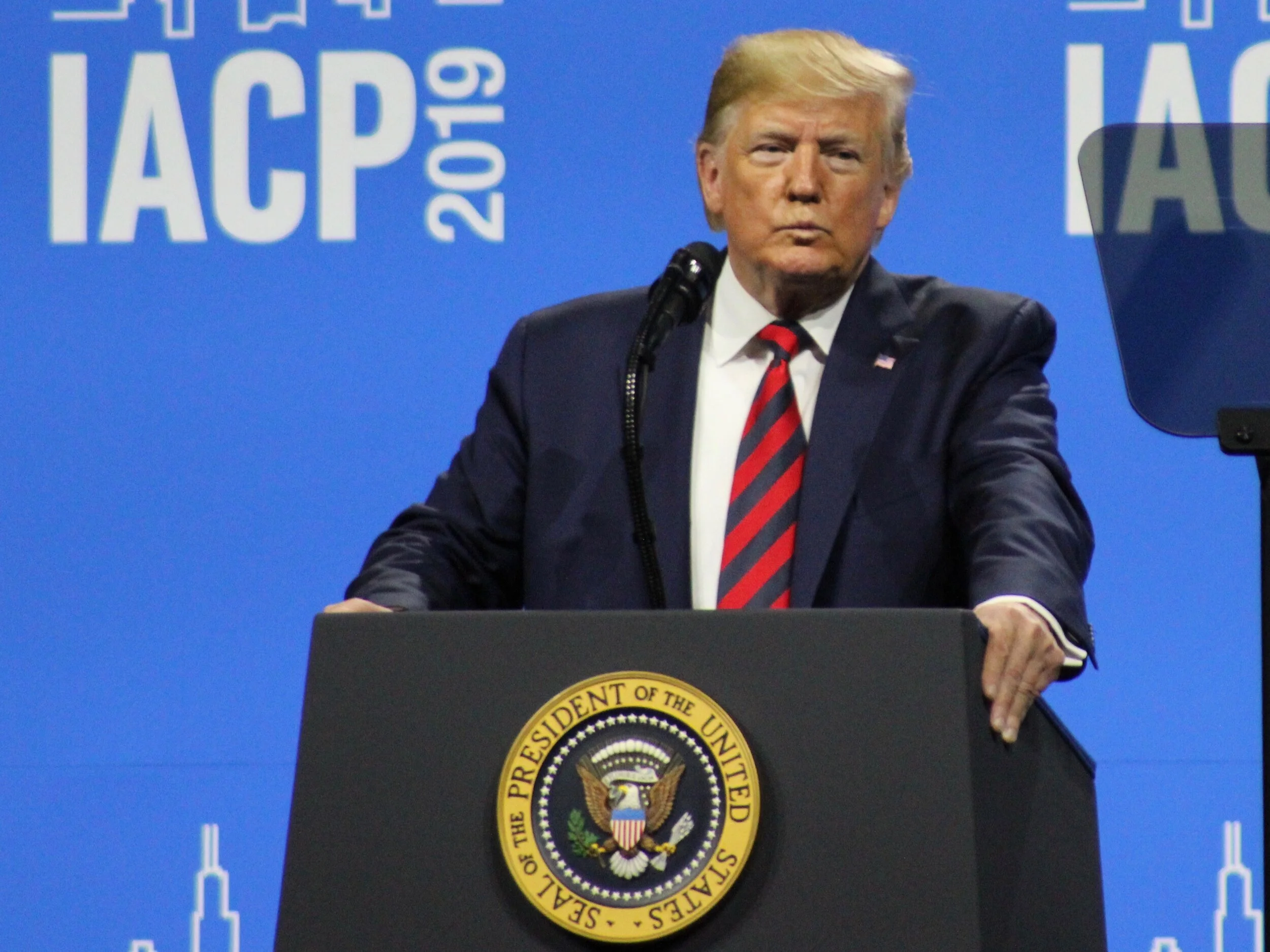Trump fiddles as idled workers fume
Delay to COVID relief bill threatens unemployed workers with lost week in benefits as new claims continue to rise
President Trump endangered at least a week of unemployment benefits for idled workers by dawdling over the COVID-19 relief package. (One Illinois/Ted Cox)
By Ted Cox
President Trump threw a wrench into extended unemployment benefits approved by Congress even as new claims filed by idled workers continued to rise.
The $900 billion COVID-19 relief package passed a week ago by Congress was expected to provide $600 stimulus checks to most Americans this week, along with extended unemployment benefits, including aid to so-called gig workers and an extra $300 a week for 11 weeks.
But when Trump called last week for the checks to be increased to $2,000, and railed against the wasteful “pork” in the $2.3 trillion omnibus government spending bill that included the latest round of coronavirus relief, that endangered benefits for millions of unemployed workers that were set to expire Saturday. Although Trump signed the bill Sunday, averting a government shutdown, the delay into the new week threatened some workers with a week of lost benefits, even as claims filed by newly idled workers continued to persist at levels never seen before the pandemic.
The New York Times reported that the U.S. Department of Labor was expected to issue guidance to states on whether the delay would cost a week of benefits. The Illinois Department of Economic Security appeared to confirm that Monday afternoon, tweeting: “We remain committed to implementing the newly announced federal unemployment benefits and relief measures as quickly and effectively as possible. We'll share more info as soon as it's available.”
Trump dithered and dallied with the bill even as the Labor Department announced last Wednesday that new claims for unemployment persisted well above pre-COVID records. The Labor Department’s weekly unemployment report found that 803,000 workers filed for benefits the week before, down from the revised figure of 892,000 the previous week — the largest number of new claims in three months. Although new claims dropped into the 700,000s for weeks before that, they never reached the pre-COVID record of 695,000 filed in a week, set during the 1982 recession. In the meantime, a new record of 6.9 million claims for unemployment insurance in a week was set the last full week of March.
Although IDES set the state unemployment rate at 6.5 percent for November, dropping below the national rate of 6.7 percent, the rate was up and jobs were down from a year ago across the state, in all 14 metropolitan areas. The state unemployment rate was up 3.1 percentage points from the 3.4 percent of last November, spurred by increases in Chicago and the suburbs, which saw an increase of 4.3 percentage points year to year from 3 percent last November to 7.3 percent last month. Overall, Illinois employment was off more than 400,000 jobs, almost 275,000 in the Chicago area.
Trump gained no real concessions in the delay. U.S. Sen Dick Durbin tweeted: “I’m glad that the president finally found the time between rounds of golf to sign the bipartisan COVID-19 relief bill aimed at helping American families. This was never about substance for him, just grievance and tantrum. Jan. 20 cannot come soon enough.” Although the U.S. House voted Monday to increase the stimulus checks to $2,000, the Senate was expected to ignore that when it returned Tuesday.
The Associated Press reported: “It was unclear what, if anything, Trump accomplished with his delay, beyond angering all sides and empowering Democrats to continue their push for higher relief checks, which his own party opposes.”
On Monday, the U.S. House voted 275-134 to increase the check amounts to $2,000. Lame-duck U.S. Rep. Dan Lipinski of Western Springs was one of just two Democrats to vote against it, while dozens of Republicans were in support. The House also voted to override Trump’s veto of a Defense Department spending bill, 322-87. Both houses of Congress need to override the Defense bill Trump vetoed earlier over complaints about renaming military bases named after Confederate leaders in the Civil War and with demands that social-media constraints be repealed — a demand that has little if any support among legislators.
U.S. Sen. Tammy Duckworth backed the override, issuing a statement saying: “By passing a (Defense bill) that included a well-deserved pay raise for our troops, Congress sent a clear message that we have our service members’ backs no matter what. By vetoing this overwhelmingly bipartisan legislation in order to honor traitors and protect his ability to easily lie on Twitter, Donald Trump is sending yet another message that he cares more about himself and his political fortunes than he does about our troops or our national security. I will vote to override this ridiculous veto.”
The Republican-controlled Senate was almost certain to ignore the bill raising stimulus checks to $2,000, until U.S. Sen. Bernie Sanders of Vermont pledged to block the Defense bill and keep the Senate in session into the weekend unless Majority Leader Mitch McConnell of Kentucky allowed a vote on the $2,000 checks. That dynamic figured to play out this week as the Senate returned to action Tuesday.

